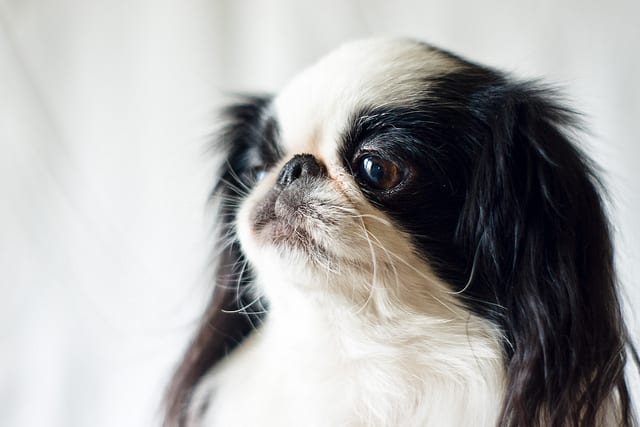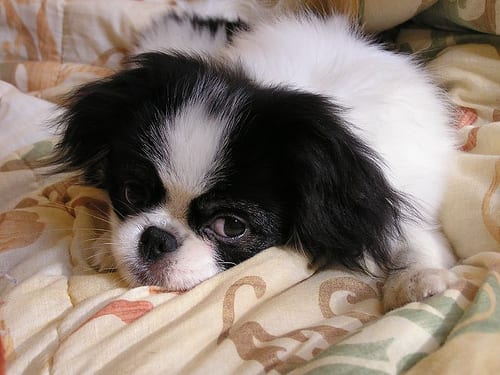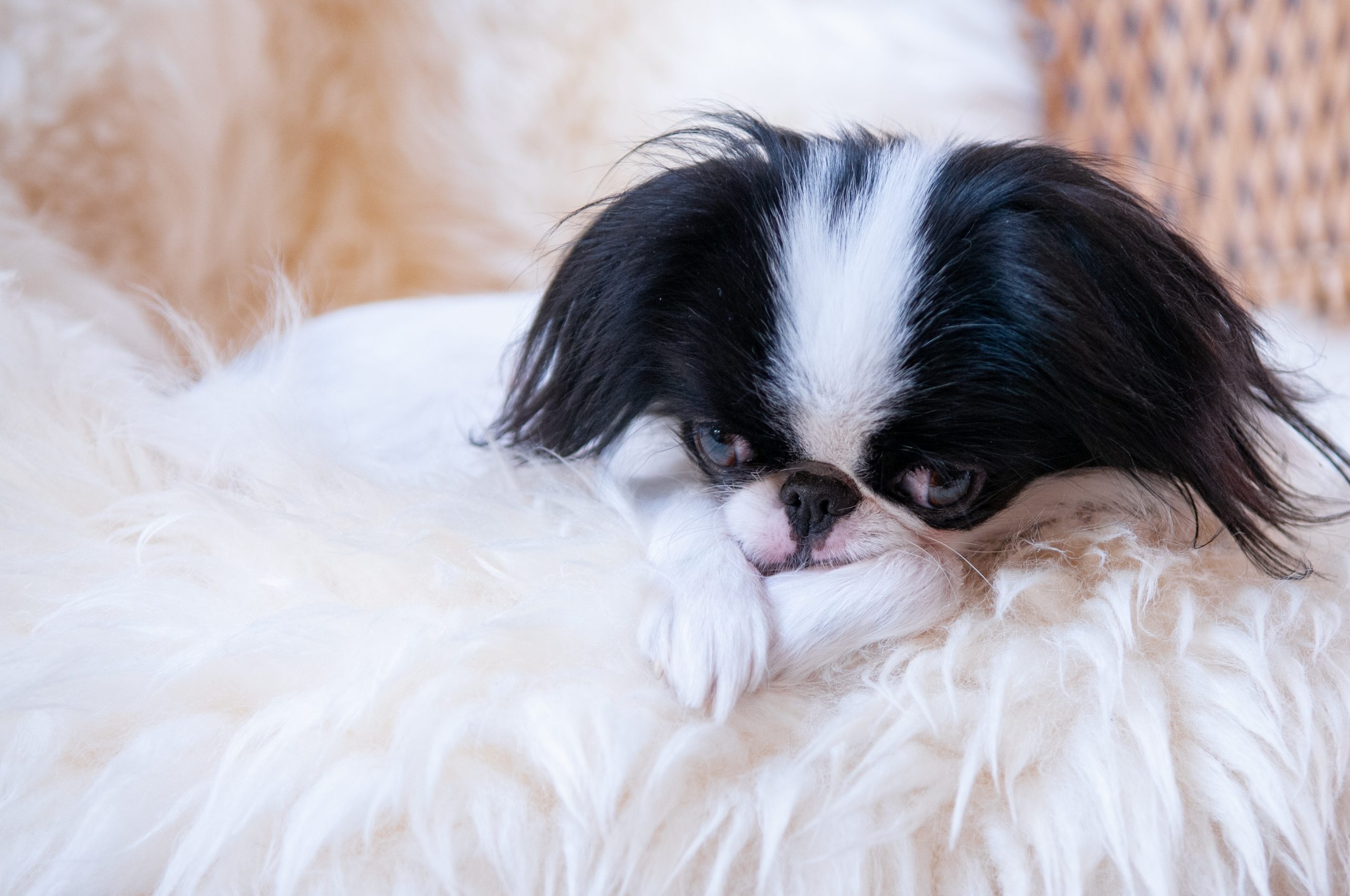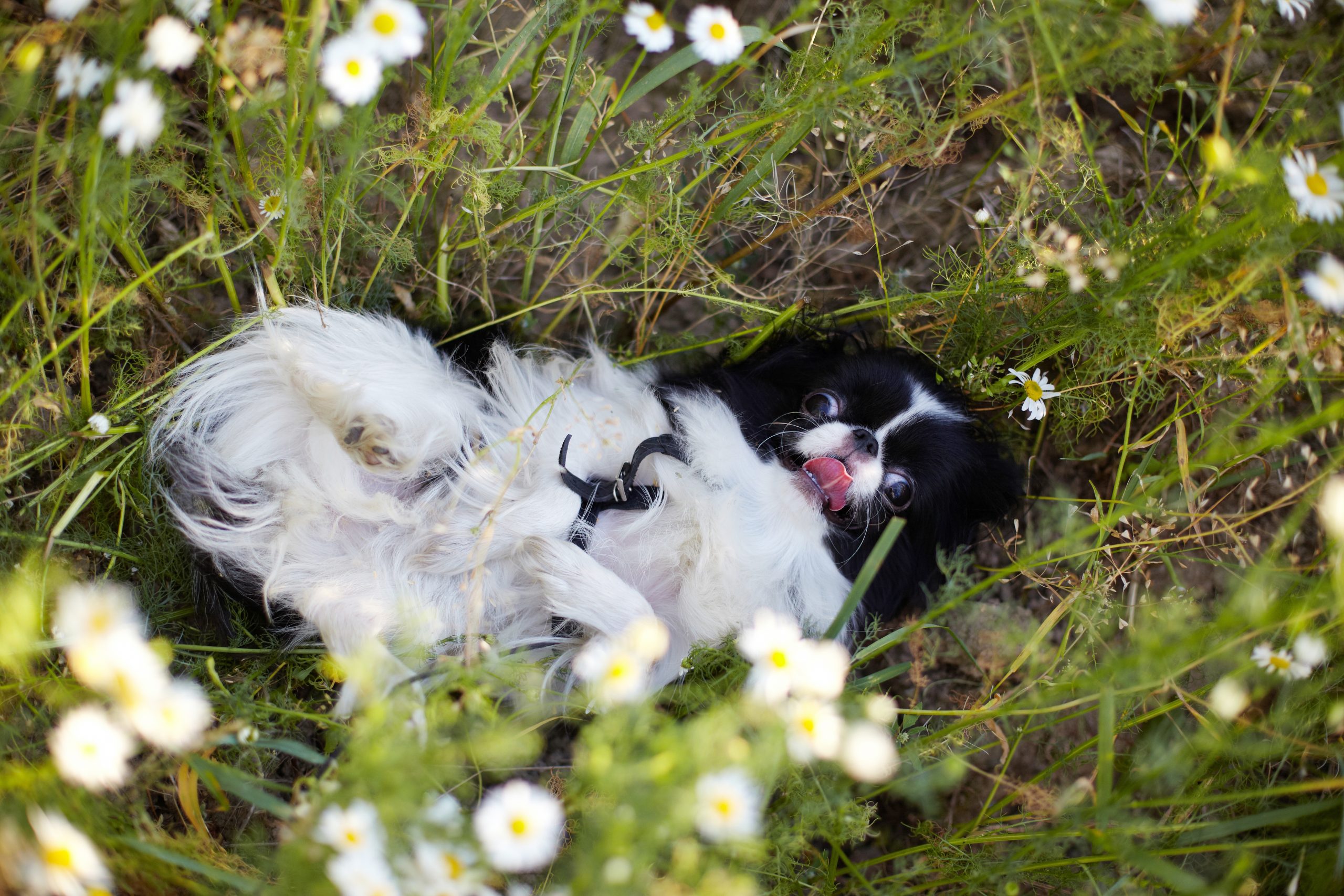Japanese Chin
No products found which match your selection.
Shelter Dog Meal Donation Count:
No products found which match your selection.
The Japanese Chin is a charming and elegant companion, known for its distinct look and loving demeanor. Perfect for those living in apartments or seeking a low-energy pet, this breed is as content with cuddle sessions as it is with playful antics. Their intelligence and affectionate nature make them a joy to train and bond with, though they do require regular grooming to keep their luxurious coat in top condition. With proper care and companionship, the Japanese Chin can be a delightful addition to any home, providing affection and entertainment in equal measure.
The Japanese Chin is a breed valued for its companionship and playful, yet gentle demeanor. They are known for their unique behavior, including “Chin spins,” a rapid twirl of excitement.

Originating in Asia, the Japanese Chin was a favorite among Japanese nobility. It is often said that the breed was gifted by the rulers of Korea to the Japanese court. They have been cherished as ornamental lap dogs and companions for centuries.




Prone to heart issues, patellar luxation, and eye problems like cataracts. Regular veterinary check-ups are essential.
Requires regular brushing to prevent matting and tangles in their long coat. Bathing should be done as needed, with care to keep their face clean and dry.
Moderate exercise needs; daily walks and playtime are sufficient. Due to their small size, indoor play can often meet their activity needs.
Intelligent and can learn quickly, but may show a degree of independence. Positive reinforcement and patience are essential in training. Early socialization is essential for their well-rounded development.
Requires a well-balanced diet formulated for small breeds. Portion control is essential to prevent obesity.
Caring for a Japanese Chin involves meeting their exercise, grooming, and companionship needs. They thrive in environments where they can be close to their owners and participate in family activities. With proper care, including regular veterinary visits, suitable nutrition, and appropriate exercise, Japanese Chins make delightful and loving companions.
The Japanese Chin, known for its distinctive expression and affectionate nature, is generally a healthy breed but, like all breeds, has predispositions to specific health issues. Awareness of these conditions and conducting recommended tests can help maintain their health.
Understanding these common health issues and adhering to the recommended tests and preventive care guidelines can help ensure a long, healthy life for a Japanese Chin. Regular collaboration with your veterinarian is critical to developing a healthcare plan tailored to your dog's needs.
The iHeartDogs Free Rx Discount Card Program is a pet prescription discount card that can help you save money on your furry friend’s medications. The card is free to sign up for, and you can use it at participating pharmacies nationwide. To use the free program, simply show the card to your pharmacist when you pick up your pet’s prescription. The pharmacist will then scan the card, and you will receive a discount on the price of the medication.LEARN MORE
Caring for a Japanese Chin involves various expenses depending on factors like location, the dog’s age, health, and personal care choices. Here’s a breakdown of typical expenses:
Total Estimated Annual Cost:
$2550 - $6700
It's important to note that these figures are estimates and can vary. Also, the first year of owning a dog can be more expensive due to one-time costs like spaying/neutering, initial vaccinations, and training. Regular budgeting for your dog's needs and an emergency fund for unforeseen costs are essential for responsible pet ownership.
We rely on ads to keep creating quality content for you to enjoy for free.
Please support our site by disabling your ad blocker.
Continue without supporting us
If the prompt is still appearing, please disable any tools or services you are using that block internet ads (e.g. DNS Servers).